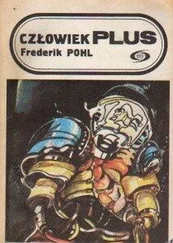All of this was as the graphs had predicted. We were aware of all of it. We continued with our work. When one of the nurses or technicians took time to worry, he had the President’s orders to reassure him. On every bulletin board, and placarded in most of the workrooms, was a quote from Dash:
You take care of Roger Torraway,
and I’ll take care of the rest of
the world.
Fitz-James Deshatine
We didn’t need the reassurance, we knew how important the work was. The survival of our race depended on it. Compared to that, nothing else mattered.
Roger woke up in total blackness.
He had been dreaming, and for a moment the dream and the reality were queerly fused. The dream had been of a long time ago, when he and Dorrie and Brad had driven down to Lake Texoma with a few friends who owned a sailboat, and in the evening they had sung to Brad’s guitar while the huge moon rose over the water. He thought he heard Brad’s voice again… but he listened more closely, his brain clearing from sleep, and there was nothing.
There was nothing. That was strange. No sound at all, not even the purrs and clicks of the telemetry monitors along the wall, not even a whisper from the hall outside. However much he tried, with all the enhanced sensitivity of his new ears, there was no sound at all. Nor was there light. Not in any color, not anywhere, except for the dullest of dim red glows from his own body, and a glow equally dull from the baseboards of the room.
He moved restlessly, and discovered he was tethered to the bed.
For a moment terror flooded through his mind: trapped, helpless, alone. Had they turned him off? Were his senses deliberately blacked out? What was happening?
A small voice near his ear spoke again: “Roger? This is Brad. Your readouts say you’re awake.”
The relief was overpowering. “Yes,” he managed. “What’s going on?”
“We’ve got you in a sensory-deprivation environment. Apart from my voice, can you hear anything?”
“Not a sound,” said Roger. “Not anything .”
“How about light?”
Roger reported the dim heat glow. “That’s all.”
“Fine,” said Brad. “Now, here’s the thing, Roger. We’re going to let you work in your new sensorium a little bit at a time. Simple sounds. Simple patterns. We’ve got a slide projector through the wall over the head of your bed, and a screen by the door — you can’t see it, of course, but it’s there. What we’re going to do — wait a minute. Kathleen’s determined to talk to you.”
Faint friction sounds and scuffles, and then Kathleen Doughty’s voice: “Roger, this shithead forgot one important thing. Sensory deprivation’s dangerous, you know that.”
“I’ve heard it,” Roger admitted.
“According to the experts the worst part of it is feeling impotent to end it. So any time you begin to feel bad, just talk; one of us will always be here, and we’ll answer. It’ll be Brad, or me, or Sulie Carpenter, or Clara.”
“Are you all there right now?”
“Christ, yes — plus Don Kayman and General Scanyon and, cripes, half the staff. You won’t lack for company, Roger. I promise you that. Now. What about my voice, is that giving you any trouble?”
He thought. “Not that I notice. You do sound a little bit like a creaking door,” he evaluated.
“That’s bad.”
“I don’t think so. You sound kind of that way all the time, Kathleen.”
She giggled. “Well, I’m going to stop talking in a minute anyway. What about Brad’s voice?”
“I didn’t notice anything. Or anyway, I’m not sure. I was sort of dreaming and for a minute I thought he was singing “Aura Lee” along with his guitar.”
Brad cut in. “That’s interesting , Roger! What about now?”
“No. You sound like yourself.”
“Well, your readouts look good. All right. We’ll go into that later. Now, what we’re going to do is give you pure, simple visual inputs to deal with. As Kathleen says, you can speak to us any time and we’ll answer if you want us to. But we won’t speak much for a while. Let the visual circuits work themselves in before we confuse things with simultaneous sight and sound, got it?”
“Go ahead,” said Roger.
There was no answer, but in a moment a pale point of light appeared against the far wall.
It was not bright. With the eyes he had been born with, Roger suspected, he would not have been able to see it at all; as it was, he could make it out clearly, and even in the filtered air of his hospital room, he could see the faint path of light from projector to wall over his head.
Nothing else happened for a long time.
Roger waited as patiently as he could.
More time passed.
Finally he said, “All right, I see it. It’s a dot. I’ve been watching it all along, and it’s still just a dot. I do observe,” he said, turning his head about, “that there’s enough reflected light from it that I can see the rest of the room a little bit, but that’s all.”
When Brad’s voice came, it sounded like thunder: “Okay, Roger, hold on and we’ll give you something else.”
“Wow!” Roger said. “Not so loud, okay?”
“I wasn’t any louder than before,” Brad objected. And in fact his voice had reduced itself to normal proportions.
“Okay, okay,” Roger muttered. He was getting bored. After a moment another point of light appeared, a few inches from the first one. Both held for another long time, and then a line of light leaped into being between them.
“This is pretty dull,” he complained.
“It’s meant to be.” It was Clara Bly’s voice this time.
“Hi,” Roger greeted her. “Listen. I can see pretty well now, in all this light you’re giving me. What are all these wires sticking into me?”
Brad cut in: “They’re your telemetry, Roger. That’s why we had to tie you down, so you wouldn’t roll over and mess up the leads. Everything’s on remote now, you know. We had to take almost everything out of your room.”
“So I noticed. All right, go ahead.”
But it was tedious and remained tedious. These were not the kinds of things that were calculated to keep one’s mind busy. They might be important, but they were also dull. After an interminable stretch of simple geometric figures of light, the intensity reduced so that there was less and less spill of reflection to illuminate the rest of the room, they began feeding him sounds: clicks, oscillator beeps, a chime, a hiss of white noise.
In the room outside the shifts kept changing. They stopped only when the telemetry indicated Roger needed sleep or food or a bedpan. None of those needs were frequent. Roger began to be able to tell who was on duty from the tiniest of signs: the faintly mocking note in Brad’s voice that was only there when Kathleen Doughty was in the room, the slower, somehow more affectionate chirping of the sound tapes when Sulie Carpenter was monitoring the responses. He discovered that his time sense was not the same as that of those outside, or of “reality,” whatever that was. “That’s to be expected, Rog,” said the weary voice of Brad when he reported it. “If you work at it, you’ll find you can exercise volitional control over that. You can count out seconds like a metronome if you want to. Or move faster or slower, depending on what’s needed.”
“How do I do that?” Roger demanded.
“Hell, man!” Brad flared. “It’s your body, learn to use it.” Then, apologetically, “The same way you learned to block off vision. Experiment till you figure it out. Now pay attention; I’m going to play you a Bach partita.”
Somehow the time passed.
But not easily and not quickly. There were long periods when Roger’s altered time sense contrarily dragged his tedium out, times when, against his will, he found himself thinking again about Dorrie. The lift that Dash’s visit had given him, the pleasant concern and affection from Sulie Carpenter — these were good things; but they did not last forever. Dorrie was a reality of his reverie, and when his mind was empty enough to wander it was to Dorrie that it wandered. Dorrie and their joyous early years together. Dorrie, and the terrible knowledge that he was no longer enough of a man to gratify her sexual needs. Dorrie and Brad…
Читать дальше












